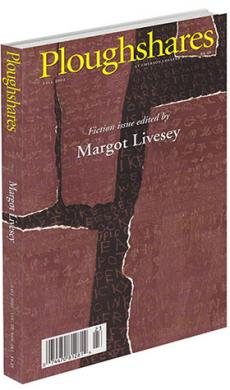rev. of Leaving Saturn by Major Jackson
Leaving Saturn
Poems by Major Jackson. University of Georgia Press, $15.95 paper. Reviewed by Afaa M. Weaver.
Major Jackson’s first collection,
Leaving Saturn, is named for Sun Ra, the jazz composer and bandleader who claimed he had acquired his otherworldly gifts and powers on Saturn, where he’d been born. Invoking Sun Ra, you face all parallel universes and endless possibilities of sound and light, like the rattling of God’s tongue, and Major Jackson is steady on the case, knowing this Sun Ra wisdom:
Space is the place.
“Urban Renewal” is the opening suite of poems in the book, and it is here that Jackson names his own origins by association. In poems that are as much assemblages of the urban vernacular as they are neo-formalist weavings in small narratives, we see what is important to Jackson in his apprenticeship as a poet. There is the recognition of African Americans’ heroic and historic struggle carried on by writers as astute and responsible as Sonia Sanchez and Chinua Achebe, and this is all prefaced in the opening poem, where Jackson probes his own lyric and the rooting of his poetic in Dionysian love: “. . . I pledged / my life right then to braiding her lines to mine, to anointing streets I love with all my mind’s wit.”
In the poem “Blunts” in the book’s second section, we have the poet asserting his artistic identity in the urban swirl of decay and hope. Standing in a North Philly doorway with his friends getting their first high, Jackson notes the evidence of genius all around him as he moves to make his own annunciation to startled eyes. “I want to be a poet,” he announces. As black men, these youngsters sense the ever-present danger surrounding their lives, along with their need for a serenity issuing from the truthfulness of beauty. The people with whom he lives respond to his desire to be who he is:
“So you want the tongue of God.”
In “Rock the Body Body,” a poem in four parts, there is more evidence of the gift: “. . . We could have crushed / pebbles, thrown fine specks of dust / at the moon . . .” The poet’s lyric tongue rises out of the emblems of urban despair and chaos to make love his language, in the further cultivation of the courage that allows him to secure a faith in the poetic of his own life. Jackson inherits the gesture of poet as hero from James Weldon Johnson’s naming of the African-American host — “black and unknown bards” — as well as from Eliot’s ghosts of white literary tradition.
Jackson knows the truth of black magic. It is a magic as simple as the belief in humanity that subverts racism, or the esoteric and mystical magic of making jazz, the music of hope and love. The black man is these things, God’s mighty riff, the miracle Countee Cullen inscribed as “to make a poet black and bid him sing.”
The progression in
Leaving Saturn is a reflexive linear movement, which is to say it is always where it is going. This kind of polyrhythmic montage of reality can only happen with a poet’s completion of his apprenticeship. The poet plays his subject until it yields its own language.
Leaving Saturn is carved as one would take a chisel to the rough side of a mountain while hanging on to the mountainside in the frail gear of a climber and the unfailing grasp of the Yoruba orisas.
In
Leaving Saturn, Jackson sings his own flight: “. . . I heard my name called / over and over from somewhere deep- / Healer! Healer of All Things!”
Afaa M. Weaver was the Fulbright Visiting Scholar at National Taiwan University in the spring semester of 2002. His new book is These Hands I Know,
from Sarabande Books.

